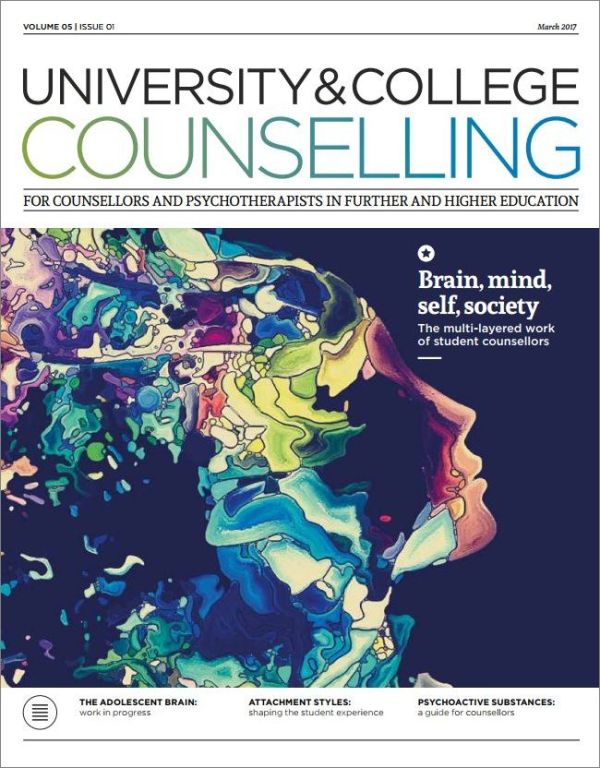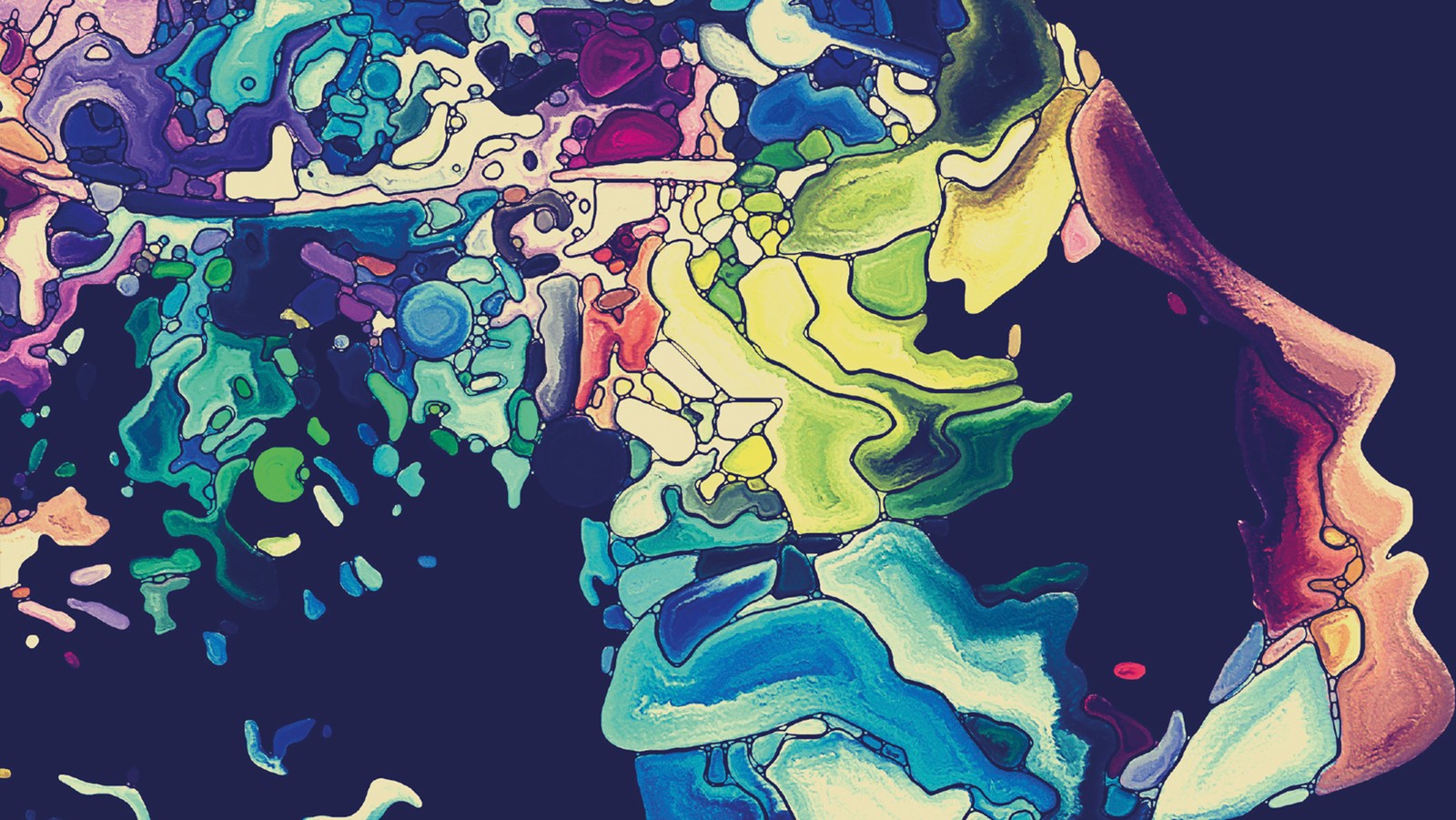In this issue
Features
The pathology of adolescence (free article)
Understanding developmental changes in the brain helps demystify apparently irrational emotion and behaviour. Michael Nagel is our guide to the adolescent brain
From cradle to campus
Abby Goldstein explores the way in which early attachment experience affects the attachment of emerging adults to our institutions
Novel psychoactive substances (NPS): no longer legal, not always highs
Use of drug-like stimulants among students is huge. What are their impact on young brains and minds? John Turner and Kirstie Soar address this complex issue
Porn and sex addiction: just another mental health issue?
Do counsellors discuss sex and porn with clients? If not, why not? Eamonn O’Mahony presents a model for addressing, understanding and working with compulsive sexual behaviour in clients
Working online: diving into cyberspace – is it for us?
In the first of a four-part series, Sarah Worley-James considers the benefits of working online in student counselling
Regulars
Profile
Jane Darougar
Divisional news
Notes from FE
Mary Jones
Notes from the chair
Jeremy Christey
Notes from HUCS
David Mair

A pdf version of this issue is available from the University and College Counselling archive
From the editor
Say the word ‘student’ and what comes to mind? For many, it will be the image of a young person, leaving home for the first time, on the brink of adulthood. We know, of course, that students come in many ages and stages, and that postgrads are as much a part of our institutions as undergrads. We occasionally read of a 70 (or even 80) year old who has just obtained a degree for the first time. The word ‘student’ can apply to anyone, and our services cater for a broad spectrum of society throughout the year.
Yet, for most of us, it is 18–22 year olds we mainly see in our work, individuals who are still at the ‘forming’ stage in life. So this issue focuses on key factors shaping the lives of young adults as they pass through our institutions – their emerging sense of self, their connections with others, and some of the environmental risks they must navigate.
Fundamentally, we start with the brain. Our state of mind, and awareness of self, are totally dependent on healthy brain functioning. Michael Nagel, from the University of the Sunshine Coast in Australia, outlines for us key processes occurring in young adult brains, offering crucial information to consider when working with young people who may be unaware of the impact of those developments on their sense of self, on their emotions and on their relationships with others.
Early experience of relationships continues to affect us throughout life. The attachments we form in infancy, as well as a person’s innate attachment style, are a key factor in students’ experience of moving into the adult world and society. Attachment style can help or hinder the formation of connections with peers, institutions … and with counsellors. Understanding the importance of attachment styles and needs can help us to make sense of the way that students interact with our services. Attachment theory reminds us that ‘no man is an island’ – that we are crucially affected and determined by the quality of our interactions and the sense of self that emerges from them. Abby Goldstein, writing from the University of Toronto, emphasises how early attachment style has a powerful impact on students and the connections they make.
The human brain is a powerful, dynamic organ, but far from infallible. We remain susceptible to the influence of psychotropic substances that can exert a powerful effect over how we perceive ourselves, others and the world around us. Young students – experiencing continuing changes in brain structure at the same time as actively forming new relationships – may be particularly vulnerable to a culture of experimentation and drug use, which can have serious consequences for personal wellbeing. John Turner and Kirstie Soar explore the world of illegal substances and their possible effects, while Eamonn O’Mahony describes the impact of internet porn on the human brain, using an ‘addiction’ framework to describe this.
And this issue sees the start of a new four-part series exploring dimensions of online counselling. Sarah Worley-James will be our guide, helping us to engage with technology which, for students, is second-nature but which for some of us may feel alien and intimidating.
Counselling is fascinating work. We operate within a web where brain, mind, self and society constantly interact. Deepening our understanding of these interconnected aspects of our clients (and ourselves) can both enrich and enliven the work we do. Enjoy this issue and the insights it brings from our contributors.
David Mair, editor
david.mair@bacp.co.uk
